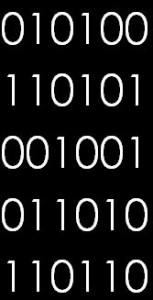Every time I boot my machine it sounds like a gremlin is busy hiding things out of sight.
Writers take pleasure in the fact that they are in charge. Creating one’s own words is a cherished right for those of us who still care. But now the ubiquitous personal computer appears to have become a true collective enterprise jointly managed by Microsoft, Google, a very fussy Adobe. I’m there too when I’m allowed. After everyone is done inspecting and changing “my” software, I weigh in from time to time to see what changes have been done. Not long ago my computer was scrubbed for a day of anything connected to Google. Whose idea was that?
It is an old topic to complain about wayward computers. So it’s my turn. Perhaps Elon Musk will want to take a shot at this old HP home computer and make it self-driving. Will it be days or weeks until my disk drive tells me to take a hike and let A.I. manage my digital life?
![]()
At start up my hard drive sounds like what you might hear outside a house when kids inside discover that their parents are home.
Every time I boot my machine it sounds like it is extremely busy hiding things out of sight. At start up my hard drive sounds like what you might hear outside a house when kids inside discover that their parents are home. Most mornings the digital furniture always seems to be hastily reassembled, with Microsoft trying to find a more spacious location to hang out as the jilted browser-in-waiting.
Like kids everywhere, most of those who have claims on my computer occasionally go on a break. “Not responding” is like the reaction I used to get from our 13 year old. Now I get it much more frequently when I’m engaged in routine reading or editing. My computer and I wait together while misplaced pixels are located and put back where they belong.
 I pay for another service to guard the ramparts, boldly going nowhere fast to report back every week that I’ve not been invaded. But I still get those ominous “Your Computer is Locked” screen while a monotone voice of a woman tells me I will need to call her if I want it fixed. Some cretins have figured out this malware in an effort to blackmail us. But so far, I’ve managed to escape this frozen state by starving the machine of power and hanging cloves of garlic on the screen.
I pay for another service to guard the ramparts, boldly going nowhere fast to report back every week that I’ve not been invaded. But I still get those ominous “Your Computer is Locked” screen while a monotone voice of a woman tells me I will need to call her if I want it fixed. Some cretins have figured out this malware in an effort to blackmail us. But so far, I’ve managed to escape this frozen state by starving the machine of power and hanging cloves of garlic on the screen.
If you use Apple products the heavy hand of control is also present. Apple has a gentle way of reminding users that their music and software is really their stuff. They at least acknowledge that you have some rights. But they work hard to keep alien Androids at bay. Sooner or later the Geek Squad will have to pay an emergency visit to put me and “my” quarreling software into rehab.
Finally, and more to the point, I worry that software “help” on various tasks can lapse into A.I. mush that looks passable as someone’s efforts. On my Word top-of-screen ribbon “Ghostwriter Autopilot” sits ready to relieve me of my complete authorship of an item. Their preferred phrase is that the tool will “accelerate content development.” A.I. Images like the visual one at the top of this piece are on thing. But words in my name are a no go.
And who can miss the new Apple ads promising that even an office deadbeat can generate enough A.I. stuff to look productive? The humor in these advertisements is far less inviting than the unintended message that their software can conceal incompetence. For once, Apple should try straightforward and earnest advertising. They would look just as cool if their messages suggested that their users were supremely capable.




